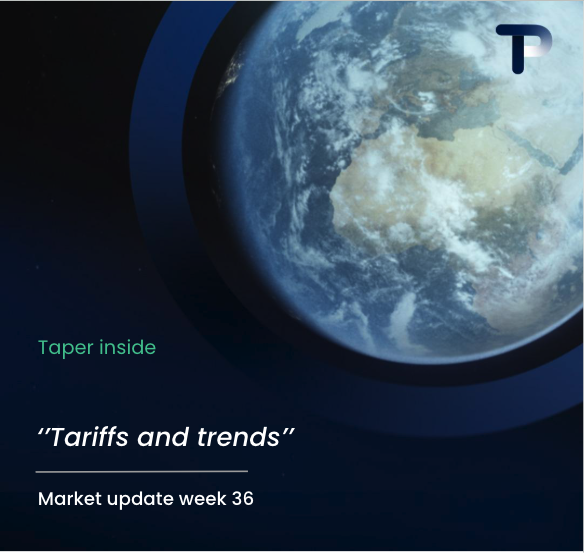When international payments to your business IBAN are delayed, it’s important to take a structured approach to resolve the issue. First, contact both your bank and the sender’s bank to pinpoint the cause of the delay. Gather all transaction details including reference numbers, exact amounts, and dates to facilitate tracking. Check if compliance procedures or incorrect payment details are holding up the transfer. Consider alternative payment options for immediate business needs while resolving the delay. Finally, implement prevention strategies like verifying payment information and establishing clear payment terms with your international partners.
Understanding international payment delays with your business IBAN
International payment delays are a common challenge for businesses engaged in cross-border transactions. When you’re expecting funds to arrive in your business IBAN account, delays can disrupt cash flow, affect supplier relationships, and cause unnecessary stress. These delays typically occur somewhere in the complex journey between the sender’s account and your business IBAN.
Unlike domestic transfers that often settle within minutes or hours, international payments involve multiple financial institutions, different regulatory frameworks, and sometimes several currencies. Each of these elements introduces potential points where your payment might be temporarily held up.
For businesses that rely on timely international receipts, understanding the causes and solutions for these delays is vital to maintaining healthy operations. The impact can be particularly significant for small and medium enterprises where cash flow is critical for day-to-day operations.
What are the most common reasons for international payment delays with a business IBAN?
Several factors commonly cause delays in international payments to business IBAN accounts. Identifying these can help you address issues more efficiently when they arise:
Incorrect payment details are a primary cause of delays. Even small errors in the IBAN number, BIC/SWIFT code, beneficiary name, or reference information can result in payment processing issues. Banks are required to verify this information carefully, and discrepancies often trigger manual reviews.
Compliance and security checks form another significant barrier. International payments are subject to rigorous anti-money laundering (AML) and know-your-customer (KYC) procedures. If a transaction raises flags in these automated screening systems, it may be temporarily held for review.
Intermediary bank issues are also common. Most international transfers pass through one or more correspondent banks before reaching the final destination. Each additional party in this chain adds potential delays, especially if they have different processing hours or face technical issues.
Currency conversion processes can introduce delays, particularly with less common currency pairs. Market liquidity, conversion timing, and exchange rate fluctuations may all impact processing times.
Banking holidays and time zone differences often go overlooked but can add unexpected delays to what should be straightforward transactions.
How can you track a delayed international payment to your business IBAN?
When an international payment hasn’t arrived as expected, taking a systematic approach to tracking can help resolve the issue more quickly:
Begin by gathering all available payment information from your client or customer. This should include the exact amount sent, date of transmission, transaction reference number, and confirmation receipts. These details are essential for effective tracking.
Contact your bank with these specific details and request them to trace the payment. Most banks have dedicated departments for handling international payment processing inquiries. Be prepared to provide written authorisation for this process.
Ask the sender to initiate a trace request from their end simultaneously. Often, the sending bank has more visibility into where the payment currently sits in the global banking network.
For payments sent via the SWIFT network, request a SWIFT GPI tracking number if available. This service provides real-time tracking information for international payments, similar to how you might track a package.
Maintain clear communication with all parties involved and document every conversation with banking representatives, including names, dates, and promised actions. This record will be valuable if further escalation becomes necessary.
What immediate actions should you take when an international payment to your business IBAN is delayed?
When you discover that an expected international payment hasn’t arrived in your business IBAN account, taking prompt action can help minimise the impact on your operations:
First, verify the payment details with the sender to ensure no errors were made during initiation. Request confirmation of the exact beneficiary details used, particularly your IBAN number and account name.
Contact your bank’s international payments department directly and provide all relevant transaction information. Ask specifically if they can see the payment pending in their system or if they need additional information to locate it.
Request the sender to provide proof of payment and any transaction reference numbers from their bank. This documentation helps with tracing efforts and confirms that the payment was actually sent.
Consider your immediate business needs and develop contingency plans if the payment delay will affect critical operations. This might include arranging alternative payment methods or adjusting payment schedules with your own suppliers.
For substantial or time-sensitive transactions, consider whether an alternative payment method might be more appropriate while the issue is resolved. Options like international wire transfers through different channels or digital payment platforms might offer faster alternatives in urgent situations.
How to prevent future international payment delays with your business IBAN
Preventing payment delays is always preferable to resolving them after they occur. Implementing these proactive strategies can help streamline your international transactions:
Establish clear payment protocols with your international clients, including specific information about required payment details, processing timeframes, and acceptable payment methods. Document these in your contracts and invoices.
Implement a verification process for payment information. Before expecting large or critical payments, verify all banking details directly with the sender to prevent errors that could cause delays.
Consider using multi-currency IBAN accounts for your business. At Taper, we offer business IBAN accounts in multiple currencies under your own company name, eliminating the need for currency conversion in many cases and reducing one common source of delays.
Choose financial partners with robust IBAN troubleshooting capabilities. Our team at TaperPay specialises in supporting global business transactions, providing tracking tools and dedicated assistance when delays occur.
Educate your team and clients about common causes of delays and best practices for international transfers. Understanding potential issues can help everyone involved take steps to avoid them.
By implementing these strategies and working with financial partners who understand the complexities of global transactions, you can minimise the frequency and impact of international payment delays on your business operations.
Hi there! 👋 I see you're reading about multi-currency IBAN accounts for supply chain payments. Smart choice - these accounts can save businesses 2-4% on every international transaction!
What best describes your current situation with international supplier payments?
Which of these challenges are you currently facing with international payments? (Select all that apply)
What's driving your interest in multi-currency payment solutions? Tell us about your business goals or challenges.
Great! To help us understand your specific needs better, could you share more details about your international payment volume or any particular requirements?
Perfect! Let's connect you with one of our international payments specialists who can show you exactly how Taper's multi-currency IBAN accounts can save you money and streamline your supply chain payments.
Hi there! 👋 I see you're reading about multi-currency IBAN accounts for supply chain payments. Smart choice - these accounts can save businesses 2-4% on every international transaction!
What best describes your current situation with international supplier payments?
Which of these challenges are you currently facing with international payments? (Select all that apply)
What's driving your interest in multi-currency payment solutions? Tell us about your business goals or challenges.
Great! To help us understand your specific needs better, could you share more details about your international payment volume or any particular requirements?
Perfect! Let's connect you with one of our international payments specialists who can show you exactly how Taper's multi-currency IBAN accounts can save you money and streamline your supply chain payments.



